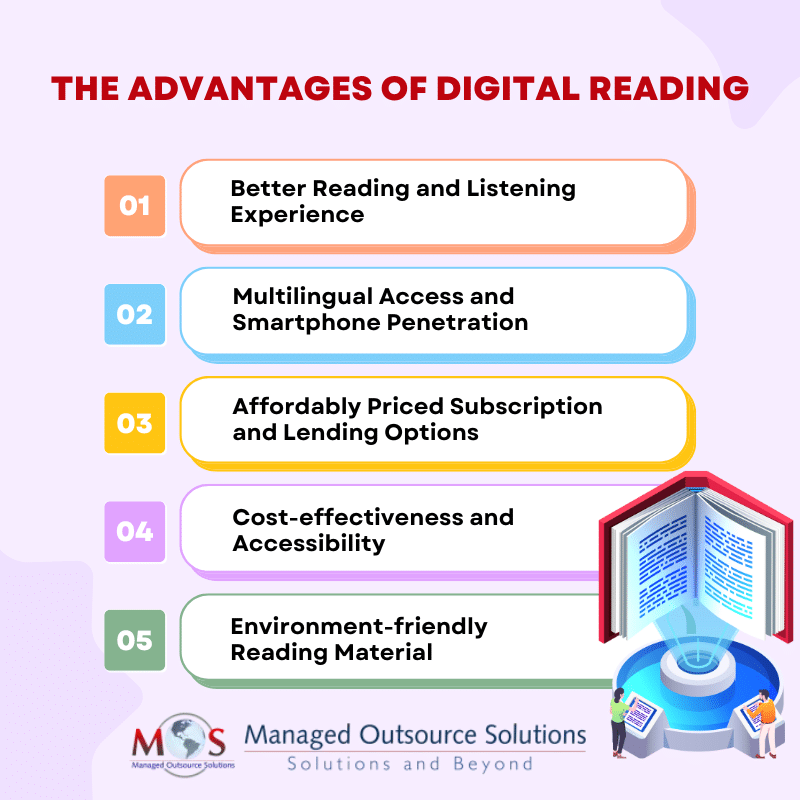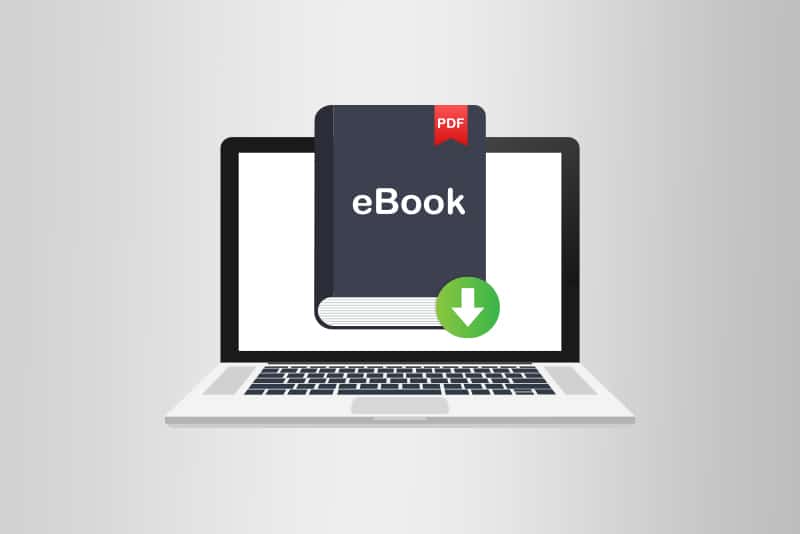Ebooks have grown in popularity over the years because of the many advantages they offer over print books. Electronic books are easily accessible on multiple platforms and are portable. The availability of eBook conversion services has made the task of publishing a book easier, allowing authors and businesses to more easily reach out to their targeted audience.
When the eBook was first introduced, it was predicted that it will bring an end to print versions. Compared to their physical counterpart, eBooks are cheaper and more portable. You can instantly customize your book with the help of an eBook conversion service and give it a more attractive and stylish new look. It can be directly uploaded on ecommerce websites and online book stores, making it accessible to a larger audience worldwide.
Technology is still transforming a lot of industries, and the publishing industry is not an exception. The emergence of eBooks has been a significant trend, providing a plethora of advantages over traditional print books. Nevertheless, the question of whether eBooks are losing ground in the publishing sector market is still being debated. However, current trends and projections suggest otherwise.
A Growing Market
Recent market research reports predict that the value of the global eBook industry will reach $32.19 billion by 2032, growing at a CAGR of 4.9% for eBook sales between 2022 and 2032. These numbers show that the digital book market is expanding healthily due to the growing interest in eBooks. Many factors are responsible for this trend:

- Better Reading and Listening Experience: Compared to traditional books, e-books have features that make reading more enjoyable. Features such as annotation, underlining, and bookmarking let readers customize their reading experiences. They make reading more accessible and pleasurable with features that respond to individual preferences and needs, like repositionable text sizes and backdrop colors.
- Multilingual Access and Smartphone Penetration: As smartphones become more prevalent worldwide, more readers will have easy access to eBooks. Multilingual translation systems driven by Natural Language Processing (NLP) facilitate users’ access the content in their preferred language, thereby reducing language barriers and broadening the audience for digital publications.
- Affordably Priced Subscription and Lending Options: A large collection of eBooks can be accessed at a reasonable price with subscription services like Scribd and Kindle Unlimited. Customized suggestions are a common feature of these platforms, which improves the user experience and makes finding new titles simpler. Reading becomes more accessible to a wider audience due to lending options, which also enable users to check out eBooks from digital libraries.
- Cost-effectiveness and Accessibility: One of the main benefits of eBooks is their accessibility. No need to go to a physical store-readers can buy and download books instantaneously, whenever they want and from anywhere. This ease of use is paired with the affordability of eBooks, which are frequently less expensive than print versions because they don’t require printing or shipping.
- Environment-friendly Reading Material: In an effort to stop deforestation and lower carbon footprints, international green efforts are aggressively pushing people to use less paper. Due to their ability to replace paper books with a more sustainable option, eBooks support these projects. eBooks are a green option for both publishers and customers because they require fewer physical resources.
The Future of Ebooks
EBooks have brought fresh life to the publishing industry, which was previously struggling to meet the demands of digital customers. They have drastically changed publishing processes and workflows. With the use of contemporary techniques, digital educational publishing has evolved from being limited to converting books into digital formats for reading and learning experiences.
The following are the main themes that will influence the digital publishing sector in 2024:
- Artificial Intelligence Technology Adoption: Advanced ebook publishing tools will facilitate the production of educational materials and reading content more quickly. They will boost writers’ imaginations and help them be more creative, which will improve their ability to convey stories. NLP will also speed up the translation process into numerous languages and improve the content’s alignment with the reader’s subtle cultural and socioeconomic contexts. This will support the provision of individualized reading and learning experiences.
- Intellectual Property Issues: Although generative AI is already making waves in the world to simplify copyright activities, one area that this technology is particularly affecting is the publishing sector. It may be difficult in the future to manage intellectual property rights when AI-produced and human content are combined, and to give the author full copyright protection. The way things develop in this specific region will be governed by more regulatory scrutiny. eBook publication processes will become more competitive as publishers strive to establish dominance, even as retaining transparency in content production workflows will be prioritized.
- Accessibility on Multiple Devices: In order to attract consumers with immersive experiences, ebook publishing will adapt to newer publication forms, such as AR/VR devices and smarter mobile devices. Furthermore, the ease of mobility and maintaining seamless experiences across devices will be crucial factors in determining how well these new technologies are adopted.
- Ability to Take Advantage of the Growing Market: The market has a ton of untapped potential because of the growing popularity of online learning platforms and the focus on inclusive and accessible digital eBook platforms. Publishers of recreational, educational, and informational content need to embrace the newest technologies in order to enable the production of captivating, multilingual content with intelligent support powered by AI.
The Resilience of Print
While eBooks continue to grow, it’s essential to acknowledge the resilience of print books. Many readers still prefer the tactile experience of holding a physical book, the smell of the pages, and the visual appeal of a well-stocked bookshelf. Print books also make thoughtful gifts and are often seen as more collectible and durable than their digital counterparts. However, the coexistence of eBooks and print books doesn’t necessarily indicate that eBooks are being edged out. Instead, it suggests a diversified market where different formats cater to varying preferences and needs.
The projected growth of the eBook market and the numerous advantages offered by digital books suggest that they are not being edged out but are instead cementing their place in the publishing industry. Enhanced reading experiences, increased accessibility, affordability, and alignment with environmental goals are propelling the eBook market forward. While print books remain cherished by many, the rise of eBooks represents a complementary expansion rather than a replacement.
For publishers and authors looking to stay competitive and meet the evolving needs of readers, investing in eBook conversion services is crucial. These services ensure that content is available in digital format, allowing for a seamless reading experience across various devices.




